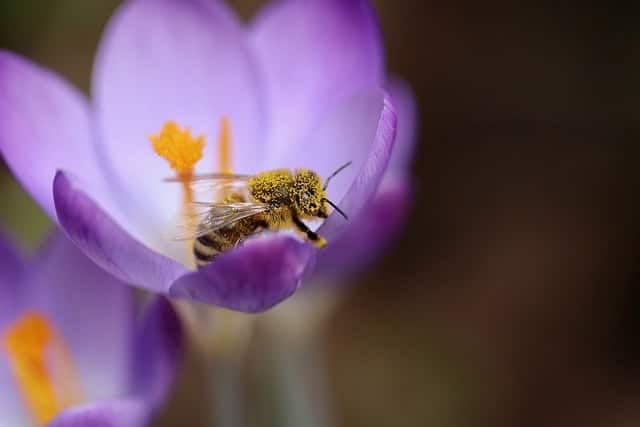
To sip is to gently sip the juice of a flower.
Sip the nectar
Bees and other animals, in this context, are responsible for sipping nectar to feed themselves. This means that they gently suck this juice. For flowers, the production of nectar is vital to attract insects that then carry out pollination (the transfer of pollen).
Let's take the specific case of bees . In order to be able to suck, specimens have a proboscis , a kind of very long tongue. At the same time, they have mouthparts that facilitate this suction. Depending on the length of the proboscis, the different types of bees are able to suck, or not, nectar from certain flowers: if the tongue is short, the action of sucking is only possible in those flowers with an open corolla.
When they arrive at a flower, bees test the quality of the nectar. When the nectar is suitable for their needs, they continue to return to that type of flower to collect it. We also have the term foraging , which designates the action of worker bees belonging to the species Apis mellifera (also known as the European, honey or domestic bee) which consists of collecting nectar and pollen from the flora of a specific geographical location.
This is also called foraging behaviour , since bees whose task is collecting are called foragers . The action of collecting is fundamental to the life of bees, and falls precisely on this caste, which has among its obligations the cleaning and feeding of the larvae, production of wax for the honeycomb and collection of nectar and pollen, an activity that they carry out around twenty days after the previous ones. It is estimated that they spend half of their life inside the hive and the other half acting as foragers, adding up to a total of forty-two days.
Sip a drink
In colloquial language , on the other hand, we speak of libar in relation to tasting a liquor or other drink . A person who dedicates himself to sipping something, what he does is savor it . For example: “My father taught me that you have to sip the liquor, not drink it in a hurry” , “At the restaurant they offered me a small glass to sip the new wine from the San Roque winery” , “You shouldn't sip rum during working hours” .

When talking about people, libar is to drink slowly.
Since the action of sipping juice from plants by insects is particularly gentle, we can understand that by extension when using this term in relation to our species it is also meant to be something delicate, done with patience and care. This is true of the first two sentences: drinking liquor in a hurry can result in not appreciating all the nuances of its flavour; if we are given a wine to taste in a restaurant, we will do so slowly , so that we can offer a detailed opinion, rather than simply saying that “it is very tasty”.
Drinking allows us to focus all our senses on the moment of ingestion, which is done not out of hunger or physiological need, but in search of a pleasure that we know beforehand or long to feel. Whether we know the product or want to know it, we do not drink with greed but with our minds focused on the taste . However, the third example presents us with a less precise use of this concept, more vulgar, which refers only to drinking, without the nuances just expressed.
